
Matcha-Tee zum Abnehmen – Wie er bei der Fettverbrennung hilft
Versand am März 29 2023,

Matcha-Tee zum Abnehmen – Wie er bei der Fettverbrennung hilft
Matcha ist ein traditionelles japanisches Grünteepulver, das aufgrund seiner gesundheitsfördernden Wirkung weltweit beliebt ist. In den letzten Jahren hat Matcha-Tee aufgrund seines Potenzials, beim Abnehmen zu helfen, an Aufmerksamkeit gewonnen.
In diesem Artikel wird untersucht, wie Matcha-Tee die Fettverbrennung unterstützen und den Stoffwechsel ankurbeln kann. Außerdem gibt er Tipps zur Zubereitung und zum Verzehr von Matcha zur Gewichtsabnahme.
Studien haben gezeigt, dass das Trinken von mehr Matcha-Grüntee den Stoffwechsel und die Fettverbrennung anregt – beides kann zur Gewichtsabnahme beitragen!
Es wurde festgestellt, dass Matcha-Grüntee einen hohen Anteil an Catechinen enthält, einer Art Antioxidans, das mit einem verbesserten Stoffwechsel und einer besseren Fettverbrennung in Verbindung gebracht wird.
Eins Studie Eine im American Journal of Clinical Nutrition veröffentlichte Studie ergab, dass der Konsum von Grüntee-Extrakt mit hohem Catechingehalt, wie beispielsweise Matcha, im Vergleich zu einer Placebogruppe zu einem signifikanten Anstieg des Energieverbrauchs und der Fettoxidation führte.
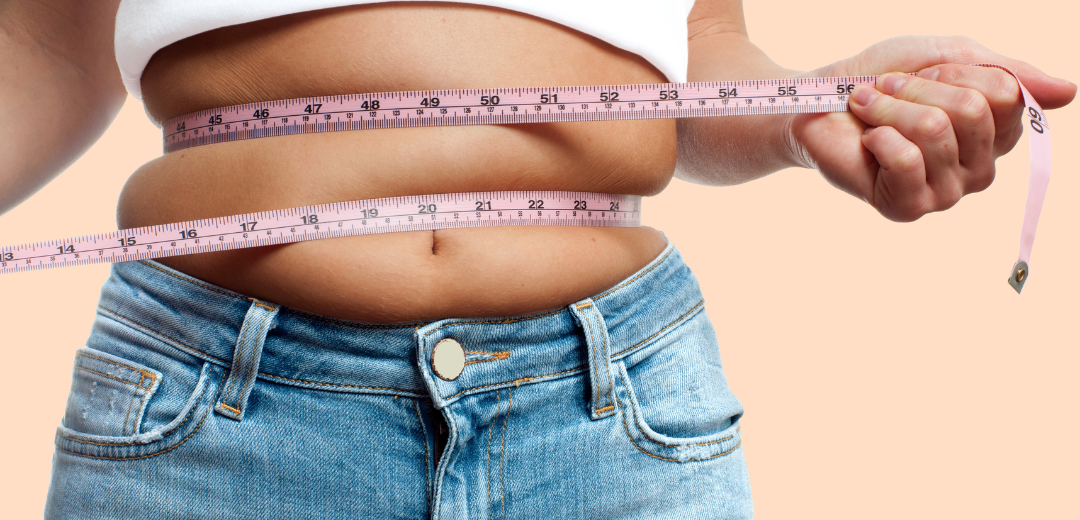
Ein anderer Studie Eine im International Journal of Obesity veröffentlichte Studie ergab, dass Teilnehmer, die 12 Wochen lang täglich Grüntee-Extrakt mit 625 mg Catechinen und 39 mg Koffein zu sich nahmen, eine signifikante Verringerung ihres Körpergewichts, BMI, Taillenumfangs und Körperfettanteils erlebten.
Diese Ergebnisse deuten darauf hin, dass der regelmäßige Genuss von Matcha-Grüntee den Stoffwechsel und die Fettverbrennung ankurbeln und so zur Gewichtsabnahme beitragen kann.
Abonnieren Sie den RSS-Feed dieses Blogs unter http://premium-health-japan.myshopify.com/blogs/news.atom
Kalorienarm
Matcha-Grüntee ist kalorienarm und daher eine ausgezeichnete Wahl für alle, die abnehmen möchten. Eine Standardportion Matcha-Tee enthält nur 3 Kalorien, was deutlich weniger ist als bei vielen anderen zuckerhaltigen Getränken.

Darüber hinaus enthält Matcha-Tee eine Kohlenhydratart namens Catechin-Gallat-Ester, die zur Regulierung des Blutzuckerspiegels beitragen und das Verlangen nach Süßem reduzieren kann.
Durch den Ersatz kalorienreicher Getränke durch Matcha-Tee können Menschen ihre Kalorienaufnahme reduzieren und Gewicht verlieren.
Nährwertprofil von Matcha-Grüntee
Matcha-Grüntee ist ein sehr nahrhaftes Getränk, das zahlreiche Vitamine, Mineralien und Antioxidantien enthält. Eine Portion Matcha-Tee (ca. 1 Gramm) enthält 30 % der empfohlenen Tagesdosis (RDI) an Mangan, das für die Knochengesundheit und den Stoffwechsel wichtig ist.
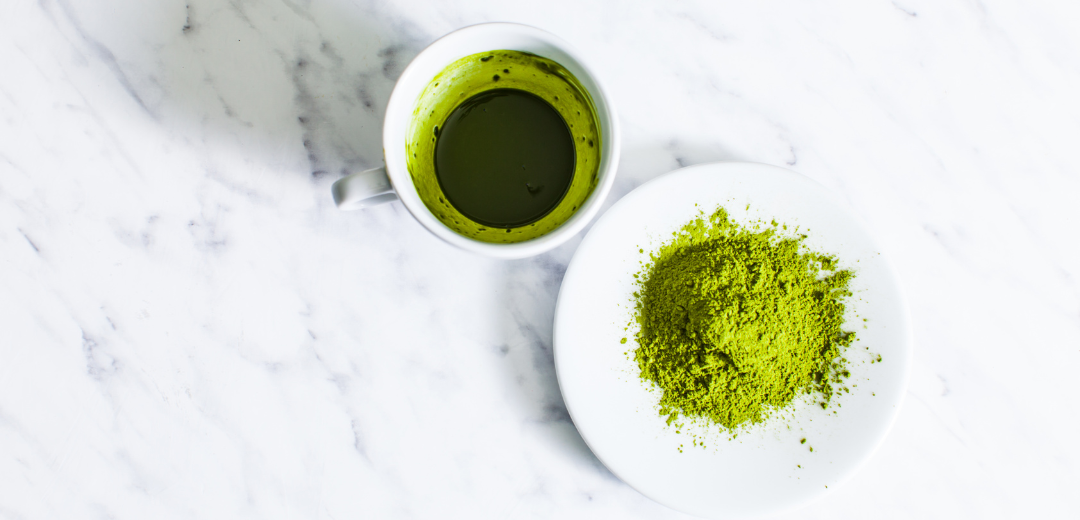
Es enthält auch geringe Mengen anderer wichtiger Nährstoffe wie Vitamin C, Vitamin K, Kalium und Magnesium.
Matcha-Tee ist außerdem reich an Antioxidantien, insbesondere Catechinen, die vor oxidativem Stress und chronischen Krankheiten schützen können. Insgesamt ist Matcha-Tee aufgrund seiner zahlreichen gesundheitlichen Vorteile eine hervorragende Ergänzung zu einem gesunden Lebensstil.
Wandelt weißes Fett in braunes Fett um
Matcha-Tee enthält das Antioxidans Epigallocatechingallat (EGCG), das nachweislich gegen Fettleibigkeit wirkt. EGCG kann unter anderem beim Abnehmen helfen, indem es weißes Fettgewebe, das Energie speichert und zur Gewichtszunahme beiträgt, in braunes Fettgewebe umwandelt, das Kalorien verbrennt und zur Regulierung der Körpertemperatur beiträgt.
A Studie Eine im Journal of Nutritional Biochemistry veröffentlichte Studie ergab, dass Mäuse, die mit einer fettreichen, mit EGCG angereicherten Diät gefüttert wurden, im Vergleich zu einer Kontrollgruppe mehr braunes Fettgewebe und ein geringeres Körpergewicht aufwiesen.
Zwar bedarf es noch weiterer Forschung, um die Auswirkungen von EGCG auf braunes Fettgewebe beim Menschen zu bestimmen, doch diese Erkenntnisse deuten darauf hin, dass der Konsum von Matcha-Tee möglicherweise ein natürliches Mittel zur Förderung der Gewichtsabnahme sein könnte.
Wie wäre es mit einer Stoffwechselankurbelung?

Matcha-Tee steigert nachweislich den Stoffwechsel, also den Prozess, bei dem der Körper Nahrung in Energie umwandelt. Studie Eine im Journal of Medicinal Food veröffentlichte Studie ergab, dass der Konsum von Grüntee-Extrakt mit hohem Catechingehalt, wie beispielsweise Matcha, im Vergleich zu einer Placebogruppe zu einer Erhöhung der Ruhestoffwechselrate führte.
Darüber hinaus enthält Matcha-Tee Koffein, das nachweislich den Stoffwechsel und den Energieverbrauch steigert.
Ein anderer Studie Eine im Journal of the American College of Nutrition veröffentlichte Studie ergab, dass Teilnehmer, die eine Kombination aus Catechinen und Koffein konsumierten, im Vergleich zur Kontrollgruppe einen signifikanten Anstieg der Fettverbrennung und des Energieverbrauchs verzeichneten. Durch die Anregung des Stoffwechsels kann Matcha-Tee dazu beitragen, mehr Kalorien zu verbrennen und die Gewichtsabnahme zu fördern.
Wie man Matcha-Tee zur Gewichtsabnahme trinkt
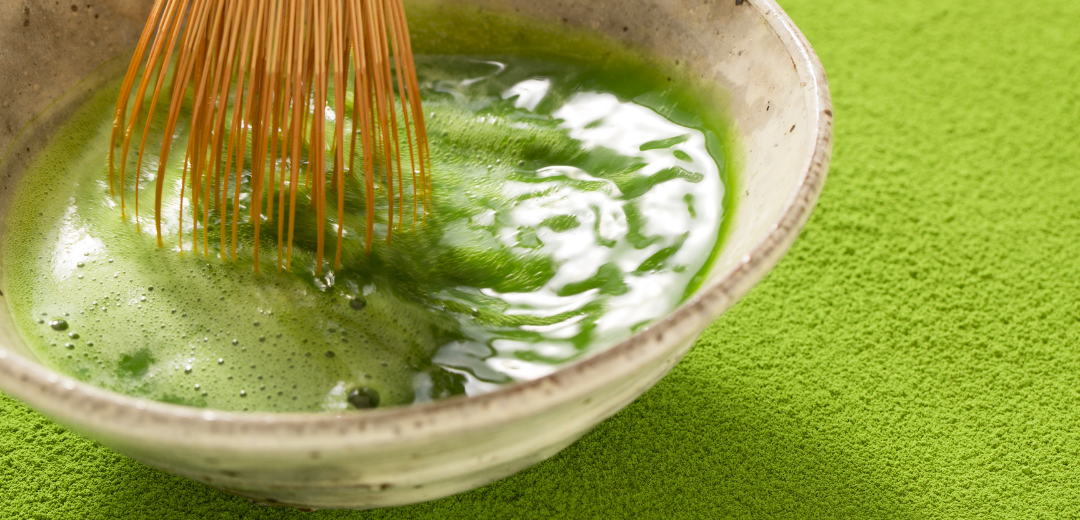
Hier sind einige Tipps zur Zubereitung von Matcha-Tee zur Gewichtsabnahme:
-
Verzehren Sie es ungesüßt und ohne Milch, um zusätzliche Kalorien und Fett zu vermeiden
-
Sieben Sie 1-2 Teelöffel Matcha-Pulver in eine Schüssel, um Klumpen zu entfernen
-
Fügen Sie 2-3 Unzen heißes Wasser (knapp unter dem Siedepunkt) hinzu und mischen Sie es mit einem Bambusbesen, bis eine glatte Paste entsteht
-
Geben Sie nach und nach mehr heißes Wasser hinzu, bis die Schüssel voll ist und der Tee schaumig ist
-
Nippen Sie langsam am Matcha-Tee und genießen Sie den Geschmack
-
Trinken Sie Matcha-Tee vor dem Training oder als Ersatz für kalorienreiche Getränke, um die Vorteile beim Abnehmen zu maximieren
Erhöht das Energieniveau
Matcha-Tee ist aufgrund seines hohen Koffeingehalts für seine energiesteigernde Wirkung bekannt. Eine Portion Matcha-Tee enthält etwa 35 mg Koffein – weniger als eine Tasse Kaffee, aber ausreichend für einen leichten Energieschub.
Im Gegensatz zu Kaffee enthält Matcha-Tee jedoch auch L-Theanin, eine Aminosäure, die nachweislich Entspannung fördert und Stress reduziert. In Kombination mit Koffein kann L-Theanin die Konzentration verbessern, ohne die mit Kaffee verbundenen Leistungsspitzen und -abstürze.
Durch die Steigerung des Energieniveaus kann Matcha-Tee dazu beitragen, dass Menschen aktiv bleiben und mehr Kalorien verbrennen, was mit der Zeit zu Gewichtsverlust führt.
Reduziert den Appetit

Matcha-Tee reduziert nachweislich den Appetit, was dazu beitragen kann, weniger Kalorien zu sich zu nehmen und die Gewichtsabnahme zu fördern. Studie Eine im European Journal of Clinical Nutrition veröffentlichte Studie ergab, dass der Konsum einer Kombination aus Catechinen und Koffein im Vergleich zu einer Kontrollgruppe zu weniger Hunger und einem stärkeren Sättigungsgefühl führte.
Darüber hinaus enthält Matcha-Tee ein Kohlenhydrat namens EGCG, das nachweislich den Appetit und die Nahrungsaufnahme reduziert. Durch das Trinken von Matcha-Tee können Sie Ihren Heißhunger zügeln und weniger Kalorien zu sich nehmen, was den Gewichtsverlust unterstützt.
Reduziert Müdigkeit und Muskelkater nach dem Training
Matcha-Tee kann Müdigkeit und Muskelkater nach dem Training lindern, was dazu beitragen kann, aktiv zu bleiben und mehr Kalorien zu verbrennen. Studie Eine im Journal of the International Society of Sports Nutrition veröffentlichte Studie ergab, dass Sportler, die Grüntee-Extrakt mit hohem Catechingehalt, wie beispielsweise Matcha, zu sich nahmen, nach dem Training weniger Muskelschäden und oxidativen Stress aufwiesen als eine Placebogruppe.

Darüber hinaus kann das Koffein im Matcha-Tee die Ausdauer verbessern und die gefühlte Anstrengung beim Training verringern, wodurch das Training leichter und angenehmer wird.
Durch die Verringerung von Müdigkeit und Muskelkater nach dem Training kann Matcha-Tee dabei helfen, die eigenen Fitnessziele zu erreichen und mit der Zeit die Gewichtsabnahme zu fördern.
Verbessert die Schlafqualität
Matcha-Tee kann die Schlafqualität verbessern, was für die Gewichtsabnahme wichtig ist, da Schlafmangel mit gesteigertem Appetit und verlangsamtem Stoffwechsel in Verbindung gebracht wird. Matcha-Tee enthält L-Theanin, eine Aminosäure, die nachweislich Entspannung fördert und die Schlafqualität verbessert.
A Studie hat herausgefunden, dass L-Theanin ein natürliches und sicheres Schlafmittel ist und die Schlafqualität verbessert. Darüber hinaus kann der Koffeingehalt im Matcha-Tee die Wachheit während des Tages fördern und so die Aufmerksamkeit und das Energieniveau für das Training steigern.
Durch die Verbesserung der Schlafqualität und die Förderung der Wachheit kann Matcha-Tee dazu beitragen, dass Menschen aktiv bleiben und mehr Kalorien verbrennen, was die Wahrscheinlichkeit einer Gewichtsabnahme erhöht.
Matcha vs. normaler grüner Tee – Warum Matcha-Pulver ein hervorragendes Mittel zur Gewichtsabnahme ist
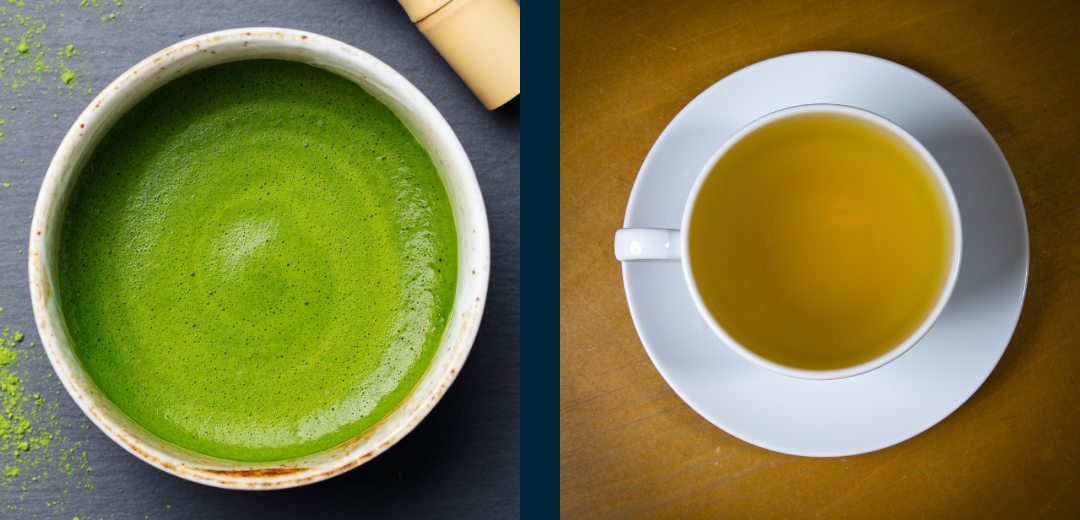
Matcha-Tee unterscheidet sich von normalem Grüntee in seiner Zubereitung und seinem Nährwertprofil, was ihn zu einem hervorragenden Mittel zur Gewichtsabnahme machen kann. Während normaler Grüntee durch Einweichen der Teeblätter in heißem Wasser aufgebrüht und anschließend weggeschüttet wird, wird Matcha-Tee durch Mahlen ganzer Teeblätter zu feinem Pulver hergestellt, was eine höhere Nährstoffkonzentration pro Portion ermöglicht.
Da Matcha-Tee im Ganzen getrunken wird, enthält er im Vergleich zu normalem Grüntee mehr Ballaststoffe und Antioxidantien. Matcha-Tee enthält außerdem höhere Mengen der Aminosäure L-Theanin, die zur Entspannung beitragen und die Schlafqualität verbessern kann.
Insgesamt bietet Matcha-Tee im Vergleich zu normalem Grüntee eine wirksamere Kombination aus Nährstoffen und nützlichen Verbindungen und ist daher eine gute Wahl für alle, die abnehmen möchten.
Um wie viel erhöht Matcha den Kalorienverbrauch beim Training?
Obwohl es keine genaue Zahl dafür gibt, um wie viel Matcha-Tee die Kalorienverbrennung während des Trainings steigert, haben Studien ergeben, dass der Konsum von Grüntee-Extrakt mit hohem Catechingehalt, wie beispielsweise Matcha, dazu beitragen kann, die Fettoxidation und den Energieverbrauch zu verbessern.
A Studie Im American Journal of Clinical Nutrition wurde festgestellt, dass Teilnehmer, die Grüntee-Extrakt mit hohem Catechingehalt zu sich nahmen, im Vergleich zu einer Kontrollgruppe eine erhöhte Fettoxidation und einen höheren Energieverbrauch aufwiesen.
Ein anderer Studie Eine im Journal of the International Society of Sports Nutrition veröffentlichte Studie ergab, dass bei Sportlern, die Grüntee-Extrakt mit hohem Catechingehalt zu sich nahmen, nach dem Training weniger Muskelschäden und oxidativer Stress auftraten als bei einer Placebogruppe.
Zwar bedarf es noch weiterer Forschung, um die genauen Auswirkungen von Matcha-Tee auf die Kalorienverbrennung beim Training zu bestimmen, doch diese Ergebnisse deuten darauf hin, dass das Trinken von Matcha-Tee dazu beitragen kann, mehr Kalorien zu verbrennen und die Fitness zu verbessern.
Wann sollte ich Matcha trinken, wenn ich nicht trainiere, aber abnehmen möchte?
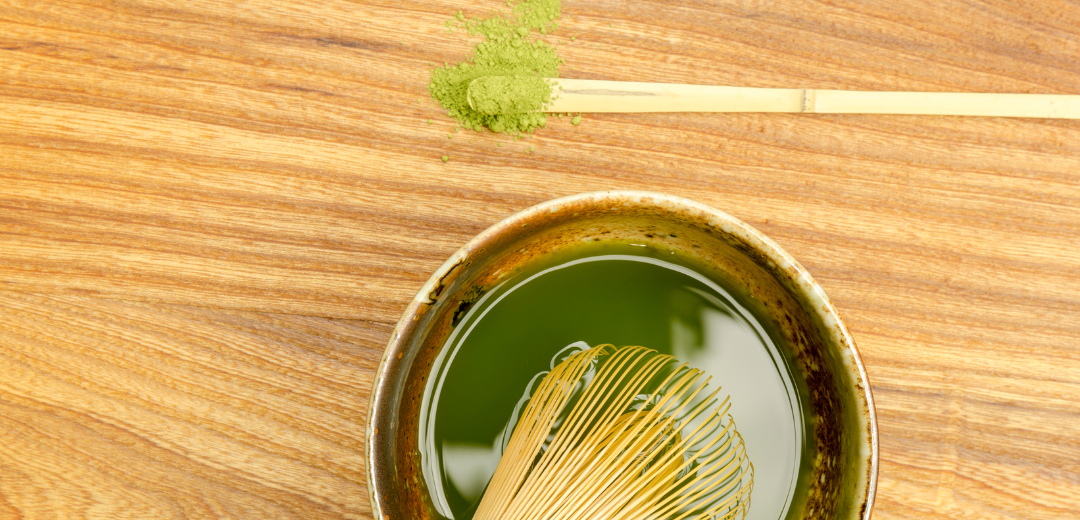
Wenn Sie nicht trainieren, aber abnehmen möchten, können Sie Matcha-Tee zu jeder Tageszeit trinken. Um den potenziellen Gewichtsverlustvorteil zu maximieren, sollten Sie Matcha-Tee jedoch anstelle von kalorienreichen Getränken wie Fruchtsäften oder zuckerhaltigen Kaffeegetränken trinken.
Matcha-Tee ist ein kalorienarmes und nährstoffreiches Getränk, das Heißhungerattacken zügelt und ein Sättigungsgefühl fördert, was zu einer insgesamt geringeren Kalorienaufnahme führen kann. Der Koffeingehalt von Matcha-Tee kann außerdem das Energieniveau steigern und möglicherweise den Stoffwechsel ankurbeln.
Um die Schlafqualität nicht zu beeinträchtigen, trinken Sie Matcha-Tee am besten früher am Tag und beschränken Sie den Konsum auf nicht mehr als 2–3 Portionen pro Tag.
Abschließende Gedanken
Matcha-Tee ist eine hervorragende Ergänzung zur Gewichtsabnahme, da er den Stoffwechsel anregt, Fett verbrennt, den Appetit reduziert, das Energieniveau steigert und die Erholung nach dem Training fördert. Durch den regelmäßigen Genuss von Matcha-Tee können Sie Ihre Kalorienzufuhr reduzieren, aktiv bleiben und Ihre Gewichtsabnahmeziele leichter erreichen.
